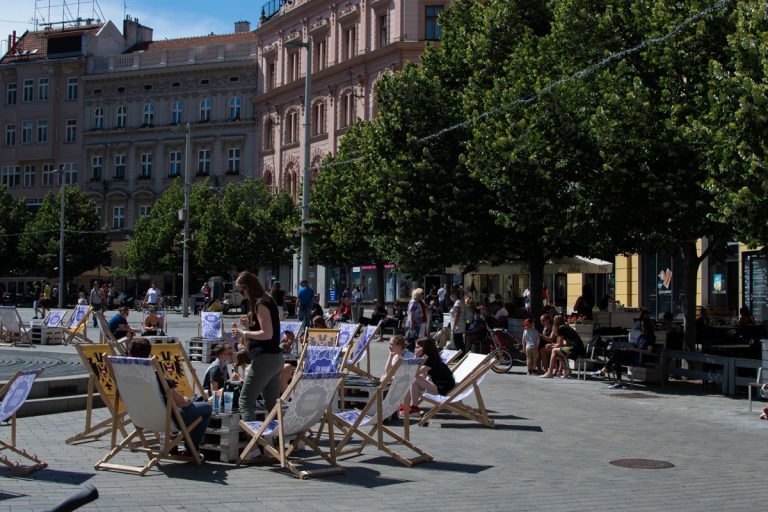Overall, the proportion of Czechs with negative views of foreigners living in the Czech Republic is the lowest in 20 years. Photo credit: KK / Brno Daily.
Prague, May 3 (CTK) – Czechs still have the most positive view of Slovaks out of all national groups living in the country, according to the latest poll by the Public Opinion Research Center (CVVM) released yesterday. Their stance on Russians has become more negative since 2020, while the view of Ukrainians remains almost unchanged.
A total of 79% of respondents expressed a liking for Slovaks, followed at some distance by the Vietnamese (50%), Poles (47%) and Hungarians (33%).
On the contrary, the Roma and Arab communities have long been viewed the most negatively by Czechs.
8% of those polled expressed negative views of the Vietnamese, just below Poles (9%) and Hungarians (10%). The remaining respondents answered most often “neither likeable nor unlikeable” or “don’t know”.
The other groups asked about in the survey were Germans, Jews, Bulgarians, Chinese, Ukrainians, Romanians and Russians.
The Czech Republic was significantly impacted by the Russian invasion of Ukraine last year, which resulted, among other things, in the arrival of thousands of refugees from Ukraine.
While in the 2020 poll, 25% of people expressed sympathy for Russians, now it is only 15%, while antipathy towards them has risen from 34% to 48%.
A quarter of Czechs like Ukrainians, around the same as three years ago. Antipathy towards them has fallen from 35% to 32%.
“As far as Ukrainians are concerned, the most significant difference between 2020 and 2023 was found among the youngest generation, where there was a 27 percentage point increase in those who consider Ukrainians likeable,” the CVVM pollsters said.
In the oldest generation, the share of those with negative views of Russians increased by 11 percentage points. This figure rose by 18 percentage points among university graduates.
“The most significant change in attitudes to Russians was in the group with a low standard of living, where there was a 23 percentage point increase in disliking them,” the pollsters noted.
Russians are now followed only by Arabs and the Roma, who have been viewed most negatively for a long time. Arabs are disliked by 56% of Czechs, while 8% have a positive opinion. The equivalent figures for the Roma are 60% and 5%.
“As expected, Arabs and Roma are more disliked by the elderly, people with lower education and, above all, those with a lower standard of living,” said CVVM.
The CVVM report also shows that overall, the proportion of Czechs with negative views of foreigners living in the Czech Republic is the lowest in 20 years. However, around 50% of the population described people of other nationalities as a problem for the whole of the country. Only 35% of Czechs do not consider newcomers of other nationalities a problem. However, when asked to assess the specific situation in their place of residence, less than a quarter of respondents identified foreigners as a problem.
CVVM has been conducting surveys of Czechs’ opinions on foreigners newly arriving in the country since 2003. At that time, roughly three-quarters of Czechs considered foreigners a problem. Five years ago, the proportion of people with a negative opinion of foreigners was 64%, and 50% now share this view, the lowest ever.
Compared to the previous poll in 2019, the proportion of Czechs with no foreigners living in their neighbourhood has decreased from 19% to 9%.
The poll was conducted from January 31 to March 20 on a sample of 861 inhabitants of the Czech Republic aged over 15.






